Dead Hot: Bilal Hasna and Vivian Oparah on telling a ‘multifaceted’ and ‘messy’ queer story
Exclusive: The comedy-thriller's lead stars touch on LGBTQ+ representation and making something "historic"

What sold Bilal Hasna on Prime Video’s Dead Hot was the contrast between “this amazing hyper camp, poppy, and stylised world” created by Charlotte Coben (Fool Me Once) with “two characters that feel very real, nuanced, complex, and difficult.” His co-star, Vivian Oparah, echoes this. “Despite the madness and colorfulness of the world around them, their friendship was so relatable.”
In Prime Video’s upcoming comedy-thriller series, Elliot (Hasna) and best friend Jess (Oparah) find themselves engulfed in a mystery. Elliot’s boyfriend and Jess’ brother, Peter, disappeared five years ago leaving behind only a finger and a pool of blood. Presumed dead, things begin to pop up in Elliot and Jess’ lives that indicate this isn’t actually the case… The eerily similar disappearance of Will, a new man in Elliot’s life, brings back old trauma and new questions. At the same time, Elliot must contend with his “bigot” grandmother, Francine (Penelope Wilton). There’s also Detective Chief Inspector Danny (Peter Serafinowicz).
The project is a world away from the more grounded characters for which both actors are better known. Hasna has won acclaim for playing the titular drag queen in Layla, which premiered at the Sundance Film Festival. Meanwhile, Oparah has a BAFTA Leading Actress nomination for Yas in Rye Lane.
“[There was] a big prioritisation to do new and exciting things” – Bilal Hasna
Commenting further on joining a series that seems outlandish at times, both actors agree their characters had to stay grounded. “We had to treat our two roles like we were in a drama. Take their friendship seriously, and what was happening to them really seriously, and play away from the comedy,” says Oparah. Hasna agrees. “We relished the opportunity to be quite emotionally athletic in our approach to these scenes. They go on such journeys, but always rooting it in the reality [and] never playing the comedy.”
In the show we see Elliot code-switch between how he presents with Jess, his ‘chosen family’, to how he presents with his grandmother. I pitch that this forms a common thread between Elliot and Layla, who also has a duality, wondering if one role helped Hasna prepare the other.
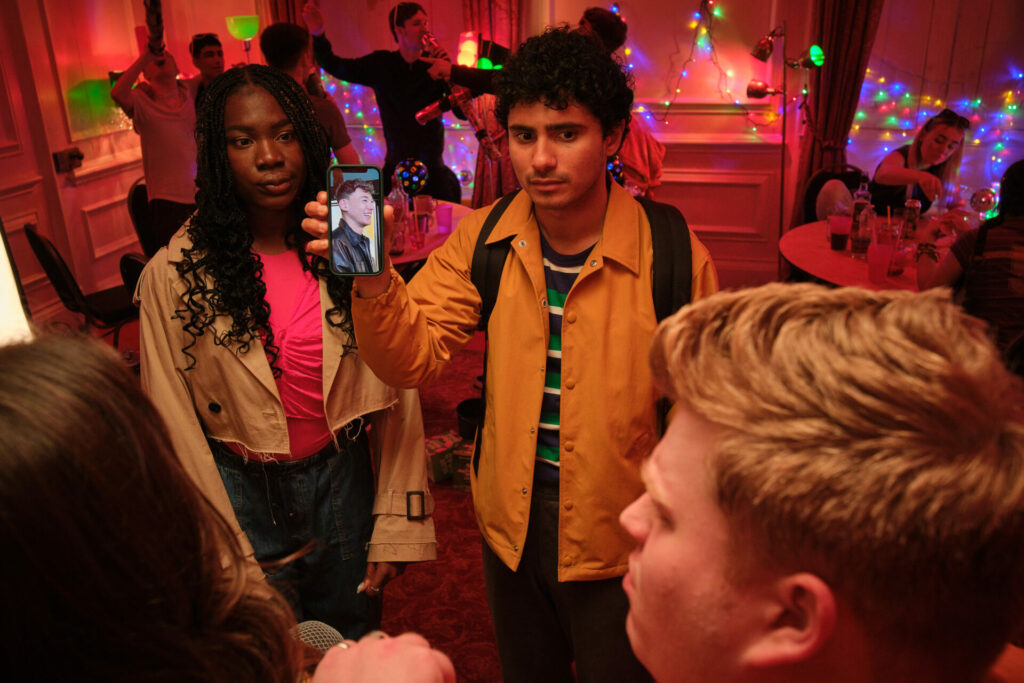
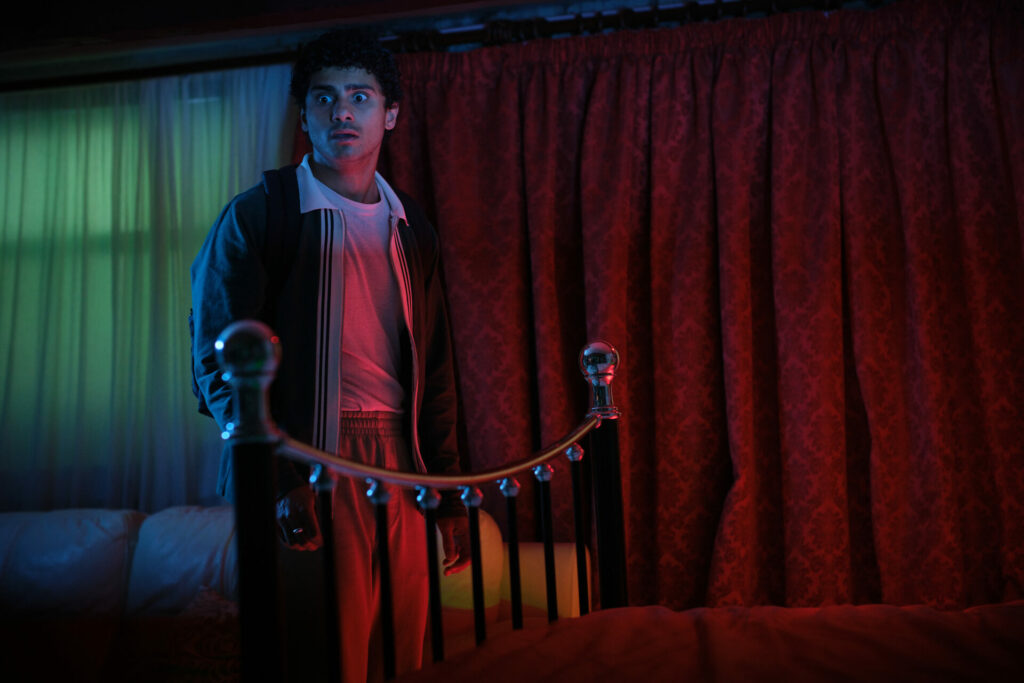
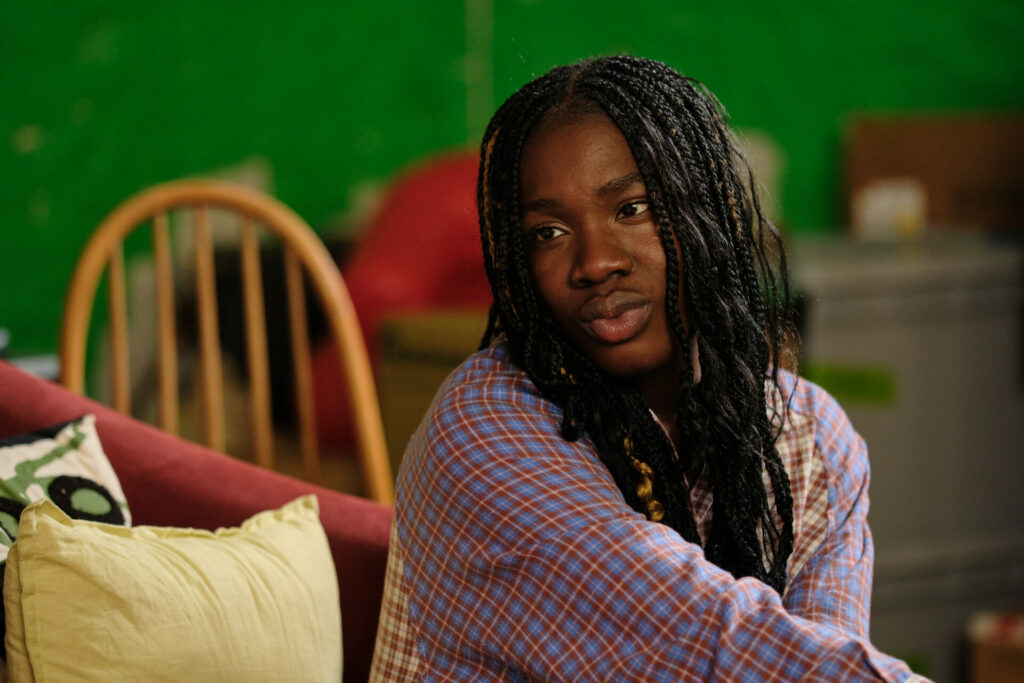
“I think there are very similar themes of code-switching,” he opines. “They’re quite different characters and the motivations behind those code switches are quite different. In Layla’s case, code-switching is a survival mechanism and belies confusion about their own identity and what others want from them. It’s more of a vulnerable and desperate act. In Elliot’s case, the code-switching with his grandma is quite a knowing thing and can often be quite manipulative. There is this unspoken relationship where Elliot gets money from his grandma by pretending that he’s straight and his grandma gets pride for herself by pretending that he’s straight. There is this knowingness that gets more revealed as the show progresses.”
“Dead Hot is a queer project in many ways, and I’m proud of that” – Bilal Hasna
Turning more specifically to Dead Hot‘s LGBTQ+ representation, Hasna shares that there was “a big prioritisation to do new and exciting things.” The show is directed by Baba‘s Sam Arbor, who Hasna celebrates as someone “dedicated to making queer work from a queer perspective.” He continues: “Everything from the nuances of Elliot’s relationship with his grandma to the way that he navigates sexual relationships with people, we tried to handle that with sensitivity.” It points to the added level of authenticity and understanding that genuine queer representation adds to queer storytelling.
Hasna also shares that there was a “predominantly queer” cast and that trans voices were platformed too. “So really, this is a queer project in many ways, and I’m proud of that. I’m really excited for the world to appreciate that as well,” says Hasna. On getting to provide queer representation Hasna is grateful to have got a chance to put his own stamp on Elliot. “With queer characters, we’re seeing more and more of them, but still a massive deficit, like, decades of a deficit. So, it’s quite exciting to play a character like this because you feel like you’re contributing to something more significant than if you’re playing a character that we’ve seen before. I hope people who look like me, who identify as queer can see themselves in that character as well.”
Indeed, there is cause for optimism that such a deficit is being reduced. GLAAD, the LGBTQ+ media advocacy campaign group reported in 2023 that 100 of the 350 films released theatrically in 2022 featured an LGBTQ character, a record. Comparatively, 16 of the 77 theatrically released films in 2021 were LGBTQ+-inclusive.
“It’s just people” – Peter Serafinowicz
Oparah is similarly happy with how the show tells queer stories. “I was happy to see queer people existing in a multifaceted way. They have agency, they’re making mistakes, being messy and also being really together, and slightly conniving or being lovely, just the facets of a person. Oftentimes minorities across the board are only represented from a stance of they’re victims of something, or they’re characters that we pity. And that’s not the case. We all know that from our lived experiences, but it’s not what we see. So, to be part of a show that challenges that and shows the truth of that, [I’m] proud and happy.”
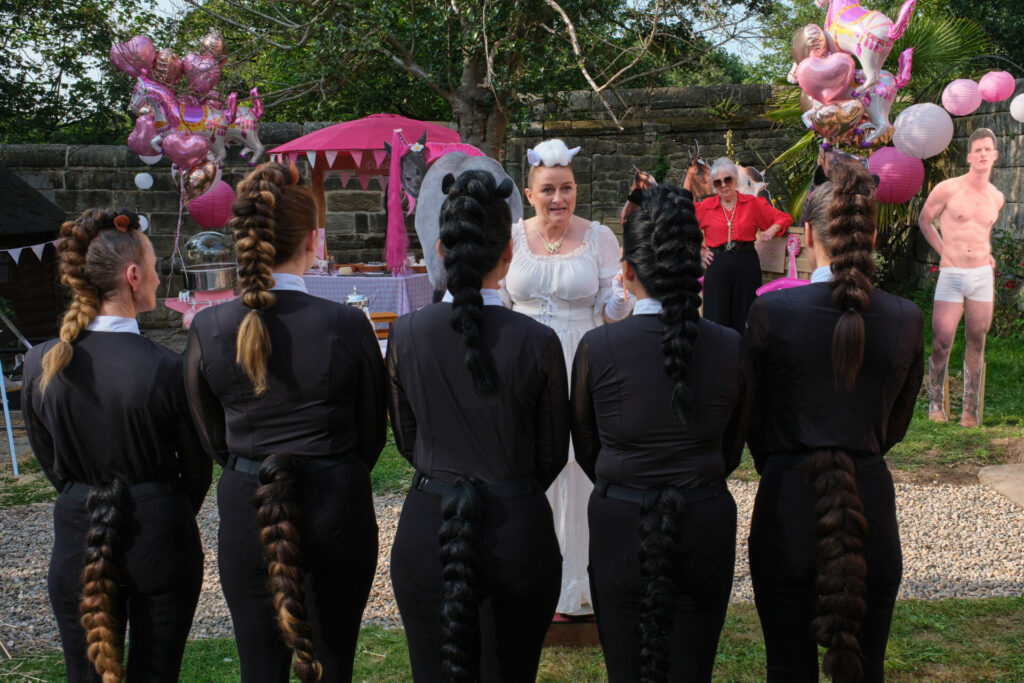
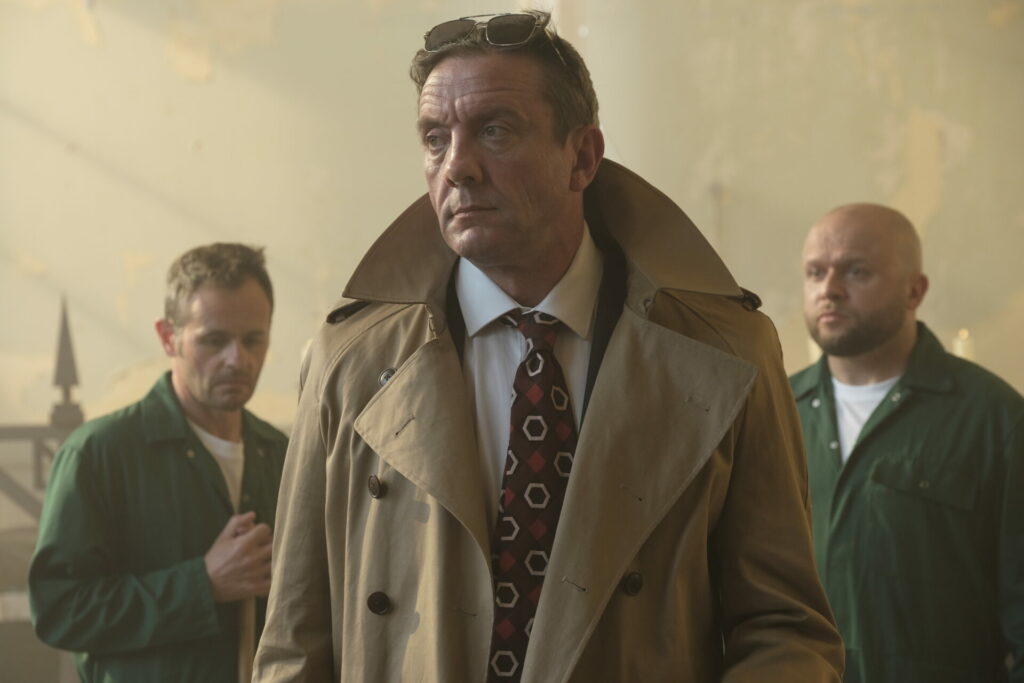
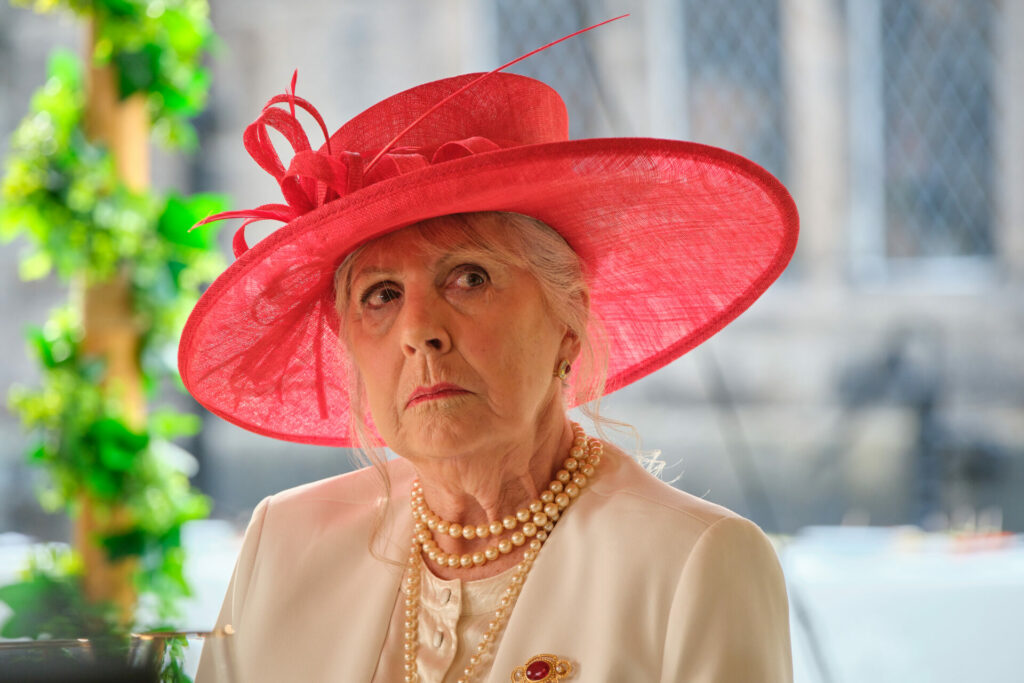
As actor Peter Serafinowicz comments in a separate chat, it would have been “daring” when he was younger to have LGBTQ+ characters so prominent. Now, “I don’t really notice it,” he then says with refreshing candor. “It’s just people.” His delightfully and also entirely well-meaning passiveness to the show’s queer representation perhaps a reflection of ongoing change.
On providing representation that perhaps Oparah and Hasna wanted growing up, the two recognise their role in that. “Like Bilal said so beautifully, you feel like you’re contributing to something historic, in a way. You somehow become the thing that you needed to see. That’s really beautiful.” Hasna adds: “In mining the truth and particularity of one specific person, you can say something, hopefully, that is more significant than that person and about a whole history.”
